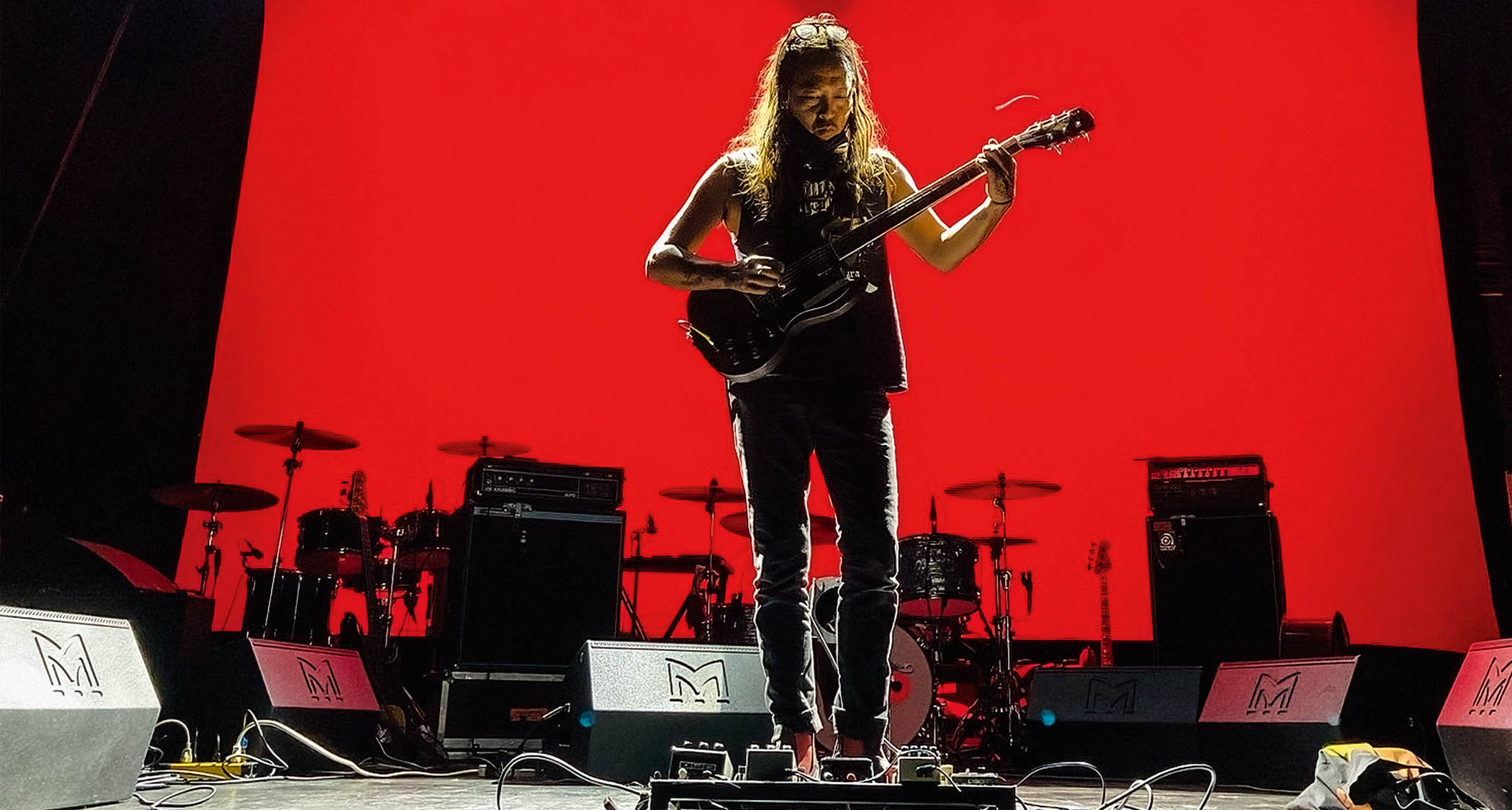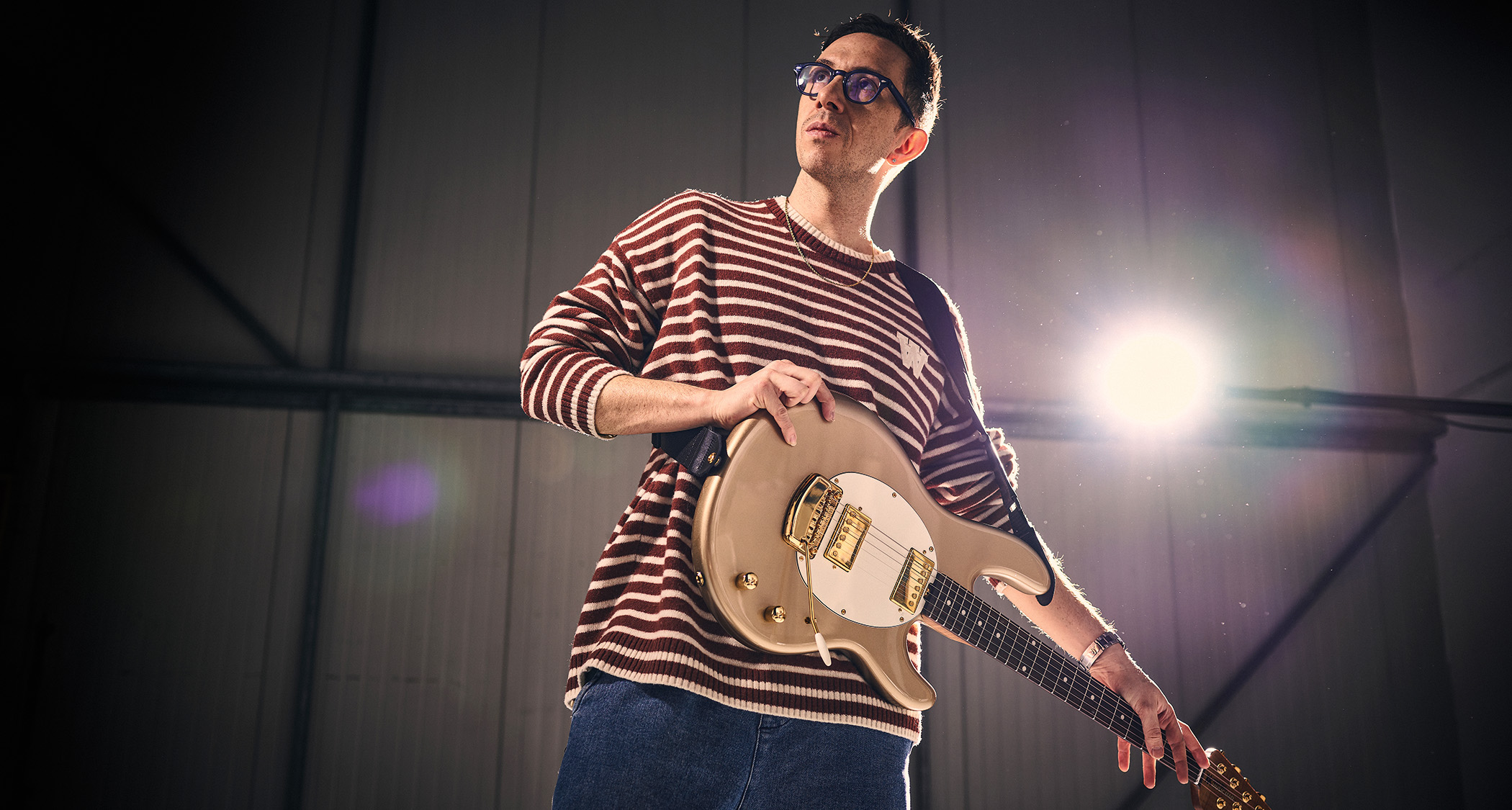“I’ve been to guitar shops and played fancy guitars and cheaper ones. I just don’t understand why people pay so much money”: Tashi Dorji explains why he sees little value in expensive instruments – but views improv guitar as anarchy
Tashi Dorji is a punk-rocker with a freewheeling improv jazz sensibility and he is totally okay with his music being impermanent, so long as it sounds alive in the moment

Bhutan-born experimental guitarist Tashi Dorji resides near Asheville, North Carolina.
While he began his musical journey through punk-rock, he now plays spiky, improvised guitar music that can be as beautiful as it is challenging, as his newest album, We Will Be Wherever The Fires Are Lit, attests.
A singular player, Tashi doesn’t seem to worry too much about audience reaction.
“You can make music for the purpose of soothing people’s ears and to give them comfort, but I make it as a practice that is part of what I do,” he explains. “It’s not that I’m intentionally trying not to please people, it’s just a pretty raw form of art that I record and release. I know that some people like it and some don’t, and that’s okay.”
Undefined & Unpredictable
It’s difficult to categorise Tashi’s solo sound, such is its mercurial, unpredictable nature, a fact that he seems well aware of.
“I really don’t know how to describe it,” he smiles, after a pause. “A lot of it feels impermanent… The stuff I’m trying to play doesn’t seem to have any lasting [effect], you know? I think that’s why I’m attracted to improvised music – there’s this interesting idea of it not enduring. It just [snaps his fingers] disappears, although it’s also constantly alive.
“I’ve been playing this style for so long now that, not to sound pretentious, it feels part of [me]. At this point I’m not interested in formalism or knowing anything, actually. It feels like this music has become part of my day-to-day physical movement.”
Get The Pick Newsletter
All the latest guitar news, interviews, lessons, reviews, deals and more, direct to your inbox!
Beyond Choice
When Tashi is discussing his output, it’s from an artist’s perspective, which begs the question: why was music the chosen medium?
“It was never I chose or didn’t choose,” he answers. “When I got to the US I was mostly into underground punk-rock from around the area, which was heavy in that anarchist tradition. It was really inspiring and it kind of led me into the music I now play.
“But, to me, music is also political, especially improvised music; it is radical in its practice and the way it approaches structures. For me, it’s the closest thing to anti-statist, in that it defies hierarchy and power structures.”
Mindblowing Mentors
As we talk about artistic influences, we ask if a certain Derek Bailey often gets mentioned to Tashi.
“All the time, man!” he laughs. “It was he who opened my eyes, and this wasn’t too long ago. I was hearing a bit of people like John Zorn, Albert Ayler or Sun Ra, but not much beyond that. I found the Derek Bailey CD Standards and it just blew my mind – it was so singular and so beautiful. But it was accessible, too, at least to my ear.
“It was just tremendous. I’d heard improvised horn and larger band music, and I’d wondered if there was the equivalent of free-jazz on guitar. That was when I found Derek Bailey and it was a profound and beautiful experience.”
If It’s Broke…
Once we get to talking about instruments, it quickly becomes clear that Tashi is not a gearhead in the traditional sense, and that his relationship with guitars is more modest.
“It’s really about affordability,” he says. “I’ve been to guitar shops and played fancy guitars and cheaper ones. I just don’t understand why people pay so much money. Look at Terrie Ex from The Ex [Netherlands band]; his guitar is so old and broken and he’s amazing.
“I saw them live and I don’t think I could have played it, it was so broken. He’s been using it for so long that he has this way with it… There’s something special about that.”
The Buzz: How Tashi uses instruments’ quirks to his advantage
Although Tashi often uses a Jay Turser semi-hollow electric and an Ibanez 2839 classical guitar, for this album and 2020’s Stateless his only tool was a steel-string acoustic.
“I really love steel-string guitars, they sound great. I have this old guitar, erm, what’s the brand?” We suggest it’s a Hohner HW605. “Yeah, that’s it [laughs]. Somebody gave me that and it’s incredible. I bought a Guild for on tour and it just can’t make those percussive sounds; the Hohner is smaller-bodied and buzzes everywhere.
“So when I did Stateless I just had so many ideas and I wanted to continue that. I think the next one will be completely different.”
- We Will Be Wherever The Fires Are Lit is out now via Drag City.
- This article first appeared in Guitarist. Subscribe and save.
Glenn Kimpton is a freelance writer based in the west of England. His interest in English folk music came through players like Chris Wood and Martin Carthy, who also steered him towards alternate guitar tunings. From there, the solo acoustic instrumental genre, sometimes called American Primitive, became more important, with guitarists like Jack Rose, Glenn Jones and Robbie Basho eventually giving way to more contemporary players like William Tyler and Nick Jonah Davis. Most recently, Glenn has focused on a more improvised and experimental side to solo acoustic playing, both through his writing and his own music, with players like Bill Orcutt and Tashi Dorji being particularly significant.
You must confirm your public display name before commenting
Please logout and then login again, you will then be prompted to enter your display name.






